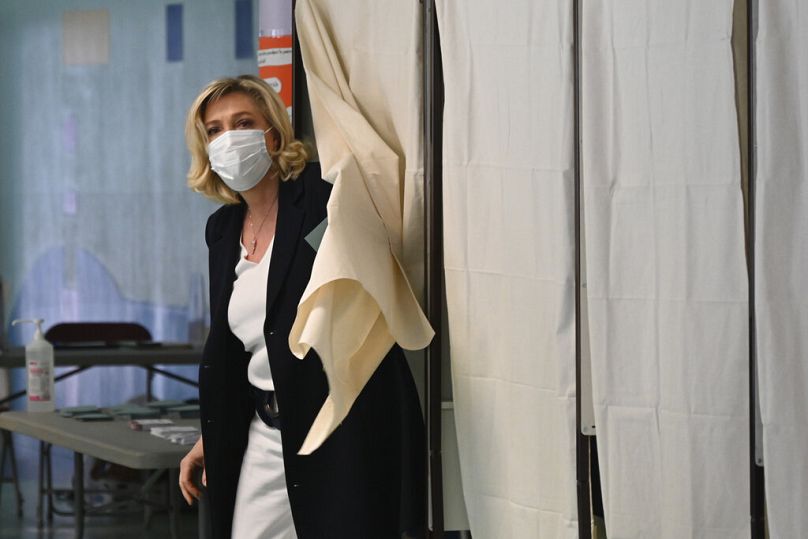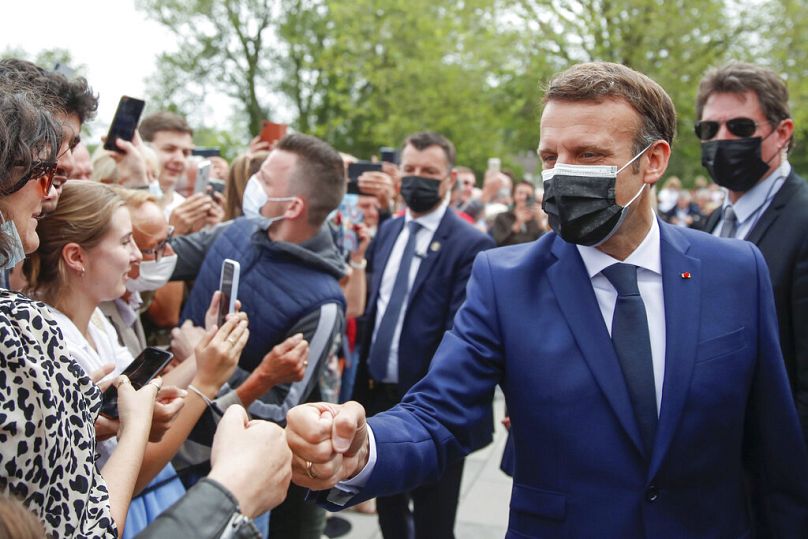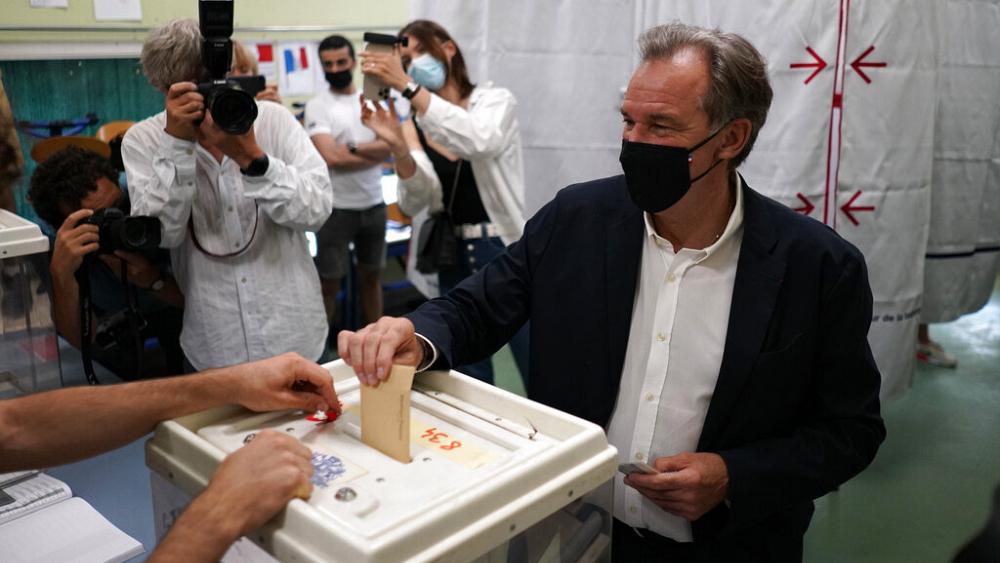French citizens are going to the polls – albeit more slowly than usual – across the country in a regional election some regard as a prelude to next year’s presidential election.
French President Emmanuel Macron has cast his vote in Sunday’s regional ballot, which is also being used by analysts and politicians to gauge how much support the far right is attracting in the country.
Marine Le Pen, the president of right-wing party the National Rally, formerly the National Front, is hopeful of gains in at least one of the 13 regions of mainland France to help legitimise her often-criticised group.
- French regional elections matter more than you think. Here is why
Polls suggest that the far-right could, for the first time, win the government of the Provence-Alpes-Côte d’Azur region. Five million people live in the region, which includes Marseille, France’s second-biggest city.

Because the vote is at the local authority level, campaigning from Brittany to Burgundy to the French Riviera has largely focused on issues such as transportation, schools and infrastructure.
But leading politicians are also using the 2021 election as a platform on which to test ideas and win followers ahead of next April’s presidential vote.
Voters will also be choosing people to run France’s 100 “départements,” another layer of the country’s governance system.
Slow start to much-anticipated Sunday vote
Turnout was lower than usual by midday on Sunday, at just 12% nationwide. In Marseille itself, many polling stations were reported to be standing largely empty.
Those who do show up to vote must stay masked and socially distanced and carry their own pens to sign voting registries.

Patrice Grignoux, a 62-year-old tech consultant casting his ballot in Paris, told AP that the focus on national politics was frustrating. “The presidential election is a world in itself,” he said.
“When you take Brittany or the Paris region, it’s totally different. The north is also completely different. There are issues you find at a regional level but have nothing to do with national issues.”
Minority parties eye new regional targets
Parties that win more than 10% of the votes in Sunday’s first-round regional vote can advance to the decisive runoff on June 27.
A major question for the runoff is whether French voters will still band together to keep Le Pen’s party out of power, as they have in the past.
Meanwhile, France’s traditional conservative Republican party looks set to keep control of several of the seven regions it currently runs, including the all-important Paris.
But another of the strongest National Rally candidates is Thierry Mariani, who is standing to lead the region that includes Provence, the French Riviera and part of the Alps.

Mariani has said he wants more police on the streets and no more public funding for groups promoting individual communities, which many see as targeting Muslim associations or LGBTQ movements.
The National Rally has also called for tougher prison sentences and a moratorium on immigration — even though these fall within the powers of the national government, not the regional councils.
The French Greens party is also hoping to gain new influence in the regional vote, while the Socialist Party is expected to lose ground.
Prospects look shaky for Macron’s centrist Republic on the Move party, which is just four years old and so didn’t exist the last time voters chose regional leaders in 2015. Rural voters who threw their weight behind the yellow vest uprising are unlikely to back the party.
The regional elections were delayed until 2021 due to COVID-19. The prime minister has scrapped an unpopular curfew, starting Sunday — just in time for the election.

